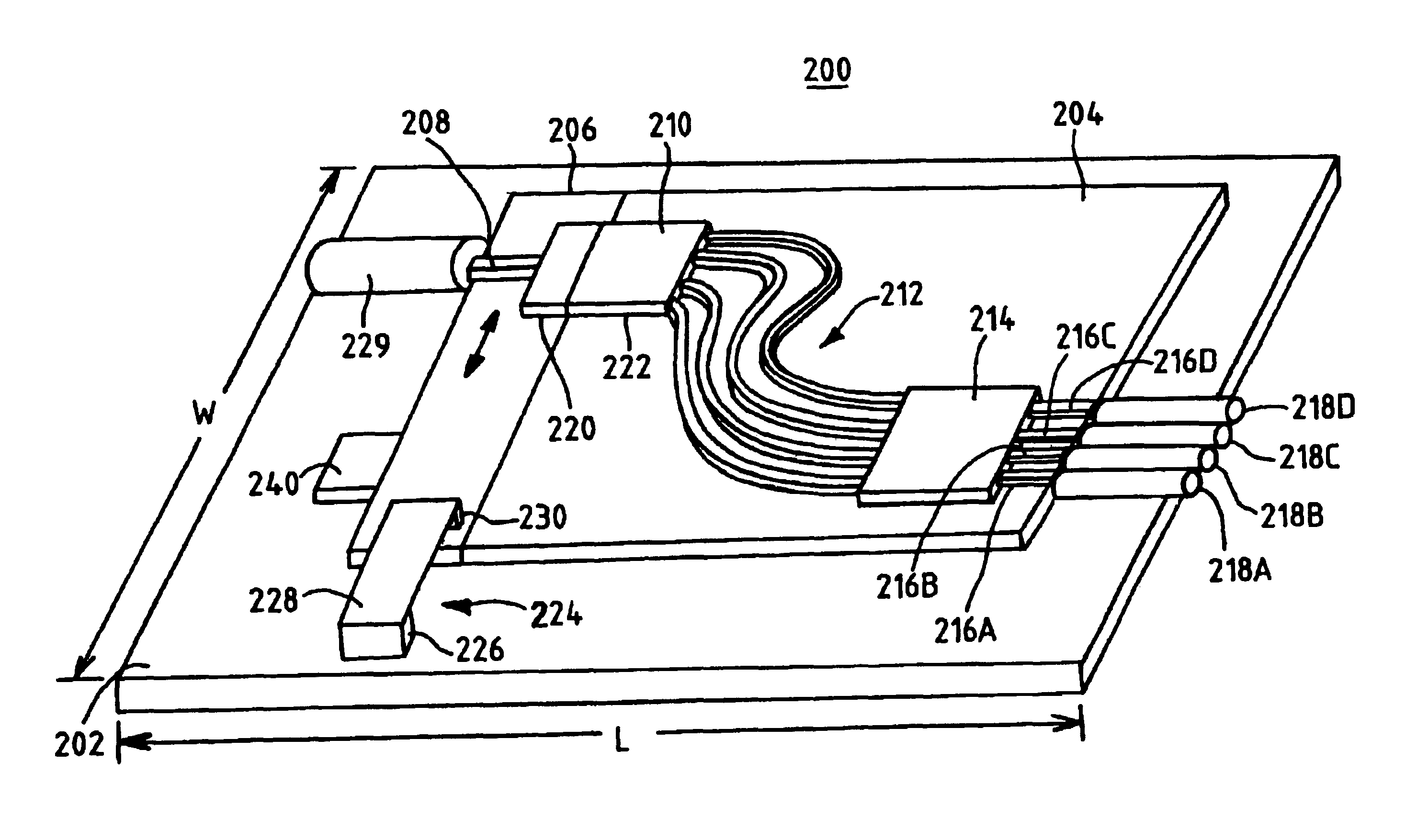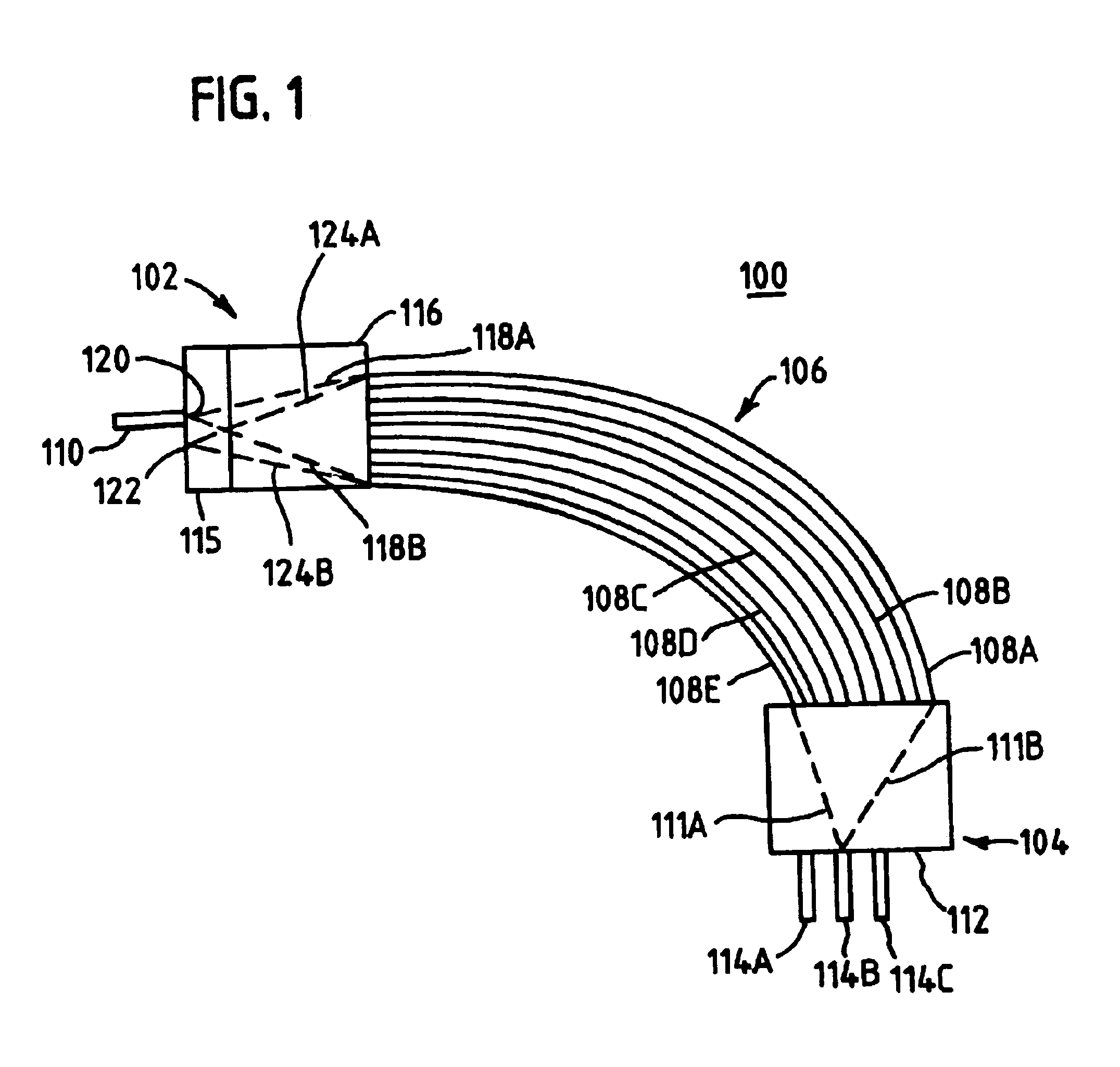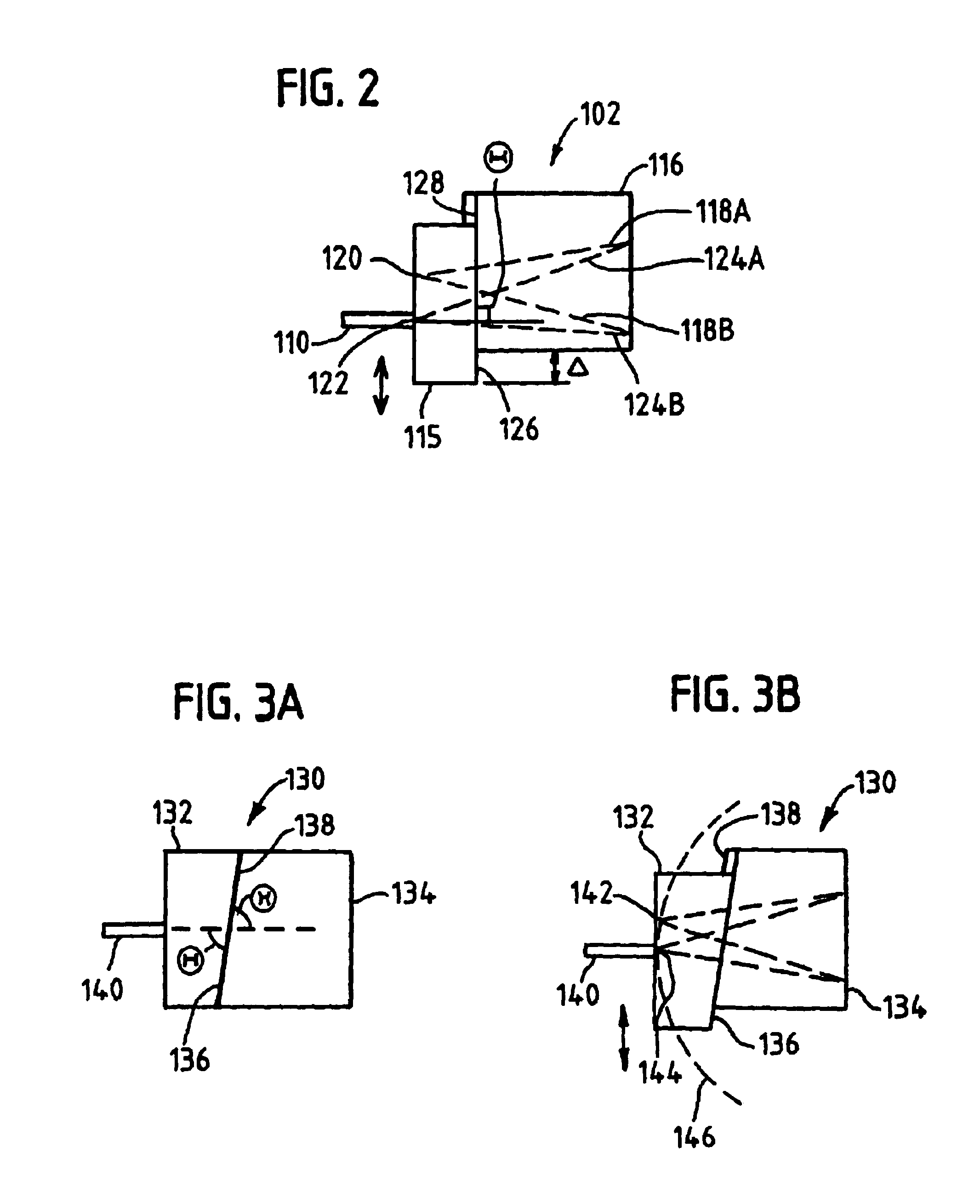Apparatus for thermal compensation of an arrayed waveguide grating
an arrayed waveguide and thermal compensation technology, applied in the field of arrayed waveguide gratings, can solve the problems of affecting the performance of many devices, introducing substantial loss into the network, and malfunctioning the entire network,
- Summary
- Abstract
- Description
- Claims
- Application Information
AI Technical Summary
Benefits of technology
Problems solved by technology
Method used
Image
Examples
Embodiment Construction
[0021]While preferred examples and numerous alternatives thereto are provided below, it will be appreciated by persons of ordinary skill in the art that these are merely examples and not intended to be exhaustive. On the contrary, the teachings herein may be used to form a great many arrayed waveguide gratings (AWGs) and other optical structures employing AWGs. Further, while the descriptions provided below are generally in the context of demultiplexer operation, the devices herein are reciprocal structures that may function as multiplexers, as well. Further still, while the approaches are described in the context of forming 1×N and N×N devices, with N equal to 4 in the depicted examples, the teachings herein may be used to form structures with N greater than 4, including structures with N much greater than 4. In fact, one of the advantages to the disclosed examples is that simple-to-fabricate-and-operate AWGs may now be formed with higher N-values.
[0022]FIG. 1 illustrates a top vie...
PUM
 Login to View More
Login to View More Abstract
Description
Claims
Application Information
 Login to View More
Login to View More - R&D
- Intellectual Property
- Life Sciences
- Materials
- Tech Scout
- Unparalleled Data Quality
- Higher Quality Content
- 60% Fewer Hallucinations
Browse by: Latest US Patents, China's latest patents, Technical Efficacy Thesaurus, Application Domain, Technology Topic, Popular Technical Reports.
© 2025 PatSnap. All rights reserved.Legal|Privacy policy|Modern Slavery Act Transparency Statement|Sitemap|About US| Contact US: help@patsnap.com



